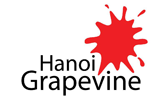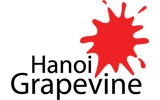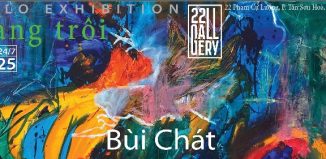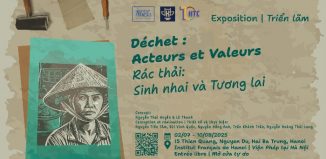Buổi chiếu màn ảnh lớn và phát trực tuyến: DER MESSIAS (Đấng Thụ Cao), K.572

15:00 – 17:45, Chủ nhật 19/12/2021
Viện Goethe
56-58-60 Nguyễn Thái Học, Ba Đình, Hà Nội
Phát miễn phí xem giới hạn trong 24 giờ từ trang Facebook của Saigon Classical
Thông tin từ Viện Goethe:
Saigon Classical với sự hỗ trợ từ viện Goethe Tp.HCM và viện Goethe Hà Nội giới thiệu Buổi chiếu màn ảnh lớn và phát trực tuyến: DER MESSIAS (Đấng Thụ Cao), K.572. Truyền kỳ tích (oratorio) gồm ba phần, cho các đơn ca, hợp xướng và dàn nhạc, nguyên tác bởi George Frideric Händel (HWV 56), chuyển soạn bởi Wolfgang Amadeus Mozart, tháng 2-3 năm 1789, tại Vienna. Bản dựng bởi đạo diễn Robert Wilson cho Quỹ Mozart Quốc tế tại Salzburg tại Liên hoan tuần lễ sinh nhật Mozart (Mozartwoche), tháng 1 và 2 năm 2020 tại nhà hát Haus für Mozart, trong dự án From Alpha to Opera – giới thiệu các vở opera nổi tiếng có phần phụ đề tiếng Việt và tiếng Anh.
Truyền kỳ tích (oratorio) The Messiah (HW 56) là một trong những tác phẩm hợp xướng nổi tiếng nhất và được biểu diễn nhiều nhất trong nền âm nhạc phương Tây, là sáng tác thứ sáu của G. F. Händel trong cùng thể loại. The Messiah không giống một vở diễn lớp lang có tuyến nhân vật thông thường, mà khởi từ các ký thuật và trầm tư sâu sắc về Đấng Messiah (Chúa Cứu Thế, Chúa Jesus) không hề xuất hiện. Lời hát (libretto) của Charles Jennens sử dụng trích dẫn Kinh Thánh và các thánh điển đương thời, từ những tiên tri ban đầu của Isaiah tới hóa thân thành phàm nhân và cuối cùng là sự Phục sinh, lời của Đấng Messiah chính là “chủ thể” truyền đạt tới chúng ta, xen kẽ với những phàm nhân vướng bận khổ đau, sợ hãi và hy vọng nên chất vấn đức tin của chính mình. Theo Händel, âm nhạc của vở ra sức khắc họa “những xúc cảm thâm trầm nhất” về những ưu tư tột cùng, thường trực dịch chuyển giữa hai cực: nỗi sợ hiện sinh và ý thức của chúng ta trước thiết yếu của cứu chuộc. Nhà nghiên cứu âm nhạc Richard Luckett miêu tả The Messiah của Händel là “một sự luận giải về sự Giáng sinh, Thương khó, Phục sinh, và Thăng thiên của Chúa Giêsu, khởi đầu với lời hứa của Thiên Chúa qua sự tuyên cáo của những nhà tiên tri và kết thúc với sự tôn vinh dành cho Chúa Kitô trên thiên đàng.”
Mozart soạn lại và cho trình diễn hai lượt Der Messias, hát bằng tiếng Đức với ngữ nghĩa sát bản tiếng Anh gốc, đánh mã K. 572, diễn ra vào tháng Ba và Tư 1789, nhuận sắc cho tác phẩm bằng các nhạc cụ bộ hơi như sáo, oboe, clarinet và kèn, và một số thay đổi ở bộ kèn đồng ở phần khí nhạc của tác phẩm. Trong thư gửi Mozart sau khi thưởng thức bản “remix” của Mozart, Nam tước Gottfried van Swieten viết như sau: “Kẻ nào đủ sức phục sức lại Händel bằng cả vẻ tôn nghiêm và mỹ cảm dường như để một bề là thỏa lòng những kẻ tôi thuộc của thời thượng và mặt khác vẫn có thể tự khẳng định bản thân, để rồi, vượt lên hết thảy, vẫn bề bề tôn quý, xin thưa, kẻ ấy hiểu rõ giá trị của bản thân; hiểu thấu và chạm vào cốt lõi của sự thể hiện để từ đó cho ra đời tạo tác của mình. Đó là cách kẻ này nhìn thấy thành tựu ngài đạt được.”
Với Der Messias (tiếng Đức), Robert Wilson nhìn nhận tâm linh, không phải tôn giáo, thuộc về sân khấu. Ông không bận tâm với những xung đột tôn giáo làm bối cảnh ra đời của tác phẩm, mà chú trọng vào tầm thăng hoa mới mẻ mà Händel và sau đó, Mozart, đã mang tới cho văn bản tôn giáo (Kinh Thánh). So với chất liệu đậm Baroque ban đầu, âm nhạc giàu họa cảm của Händel nằm trong thế giới âm thanh của Mozart cuốn hút với chúng ta hơn cả. Những ca từ, trích từ Kinh Thánh và các kinh điển xưa như sở hữu một tầm biểu đạt vượt quá các ý niệm thông thường. Chẳng hạn các ẩn dụ hình ảnh mãnh liệt trong Khải huyền thánh John bỗng gắn bó mật thiết với các phát kiến sân khấu của Robert Wilson vốn thường lem vào thế giới siêu thực, càng khiến kiệt tác “kép” của Händel và Mozart giống như điểm khởi đầu cho một chuyến hành trình tâm linh.
“Người nghệ sĩ tái tạo lịch sử như một thi nhân,” đạo diễn sân khấu Robert Wilson từng nói. Theo cách này, một cách đâu đó giữa tình cờ và hữu ý, bản dựng được giới thiệu bởi dự án From Alpha To Opera của Robert Wilson, chỉ huy Marc Minkowski, ra mắt ở Tuần lễ âm nhạc sinh nhật Mozart năm 2020 (Mozartwoche), ở Salzburg vào cuối tháng Một đầu tháng Hai năm 2020, còn có thể mang lại một diễn giải nào đó về thời đại của tất cả chúng ta, thời đại COVID-19, của những nỗi sợ, bi thống, và vẫn luôn có chỗ cho hy vọng – dường như mở ra một chân trời mới.
Robert Wilson là một trong những đạo diễn sân khấu đương đại tầm cỡ nhất thế giới hiện nay, một nghệ sĩ Phục Hưng hiện đại tiêu biểu. Từ một kiến trúc sư tại Brooklyn và học vẽ ở Paris, Wilson sáng lập tập thể sáng tác Byrd Hoffman School of Byrds tại New York giữa thập niên 1960. Năm 1976 ông hợp tác với nhà soạn nhạc Philip Glass cho ra đời vở opera hiện đại Einstein on the Beach (Einstein bên bãi biển) được trình diễn khắp thế giới và công nhận là một trong những thành tựu nghệ thuật vĩ đại nhất của thế kỷ 20. Robert Wilson đã cộng tác và hợp tác với vô số các nhà soạn nhạc, văn sĩ và nghệ sĩ trình diễn, từ Heiner Müller, Tom Waits, Susan Sontag, Laurie Anderson, William S. Burroughs, Lou Reed, Jessye Norman tới Marina Abramovic, đồng thời chỉ đạo trình diễn những tác phẩm nhạc kịch cổ điển (opera) và sân khấu tại các địa điểm tổ chức danh giá khắp châu u. Bản dựng Kỵ sĩ đen chuyển thể từ opera Nhà thiện xạ (Der Freischütz) hợp tác cùng Tom Waits và nhà văn William S. Burroughs cũng được trình diễn rộng rãi. Một nghệ sĩ toàn diện, toàn tài và toàn bích, từ viết kịch, vẽ tranh, điêu khắc, tới âm thanh, và sức sáng tạo hình ảnh vô biên trong và ngoài sân khấu, sáng tạo của người nghệ sĩ với ông là “thường trực tự đặt cho mình câu hỏi.” Các tác phẩm hội họa, điêu khắc của Robert Wilson đã được triển lãm tại bảo tàng và xuất hiện trong các bộ sưu tập tư nhân trên khắp thế giới, sau khi gặt hái vô số giải thưởng như Sư tử vàng Điêu khắc tại Lưỡng niên Venice. Ông còn nhận đề cử giải Pulitzer, thành viên Viện hàn lâm Nghệ thuật và Văn chương Hoa Kỳ và Viện Nghệ thuật Berlin với 8 bằng tiến sĩ danh dự, cùng rất nhiều huy chương danh giá khác, còn nước Đức năm 2014 trao tặng ông Huân chương Thập tự Liên bang. Tờ New York Times gọi Robert Wilson là “điểm tham khảo trong thế giới sân khấu thể nghiệm, một nhà khám phá không gian và thời gian trên sân khấu” trong khi cây bút vĩ đại Susan Sontag “không thể nghĩ tới một khối lượng tác phẩm nào đồ sộ cũng như có giàu sức ảnh hưởng dường ấy” khi nói về sự nghiệp sáng tác của vị đạo diễn.
Buổi chiếu này đã được cấp phép bởi đơn vị sở hữu bản quyền Unitel GmbH & Co.KG, thay mặt đại diện quảng bá, phát hành và quản lý bởi C Major Entertainment GmbH cho dự án From Alpha to Opera thuộc quản lý của Nhóm bạn yêu nhạc cổ điển Sài Gòn (Saigon Classical Music Group).
Việc dịch và bản địa hóa tài liệu (bao gồm cẩm nang biểu diễn của chương trình, tài liệu in và phụ đề bằng tiếng Việt) được thực hiện bởi các tình nguyện viên nhóm dự án với mục đích duy nhất là quảng bá âm nhạc cổ điển và nâng cao sự hiểu biết về các xuất phẩm trình diễn nghệ thuật chất lượng cao trên khắp thế giới. Chúng tôi cam kết luôn rõ ràng về thông tin tác giả các tài liệu gốc và các tổ chức cá nhân có liên quan trong quá trình sản xuất. Buổi trình chiếu hoàn toàn không mang tính thương mại và phi lợi nhuận.
Cập nhật thêm thông tin tại trang sự kiện.
 | Viện Goethe Hà Nội 56-58-60 Nguyễn Thái Học, Ba Đình, Hà Nội Tel.: +84 24 3734 2251 Fax: +84 24 3734 2254 [email protected] website |

















